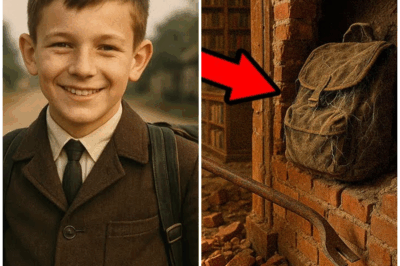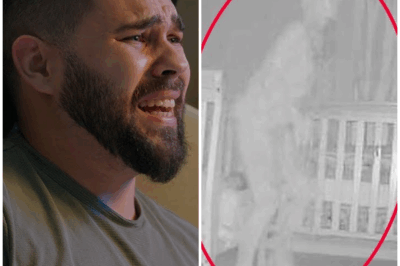After 5 years caring for my paralyzed husband, I overheard him call me a free servant. So, I did the unthinkable.
Please stay with me as I tell you my story and please take a minute of your precious time to support our channel.
Your support and love keeps us going. So, back to our story. I had spent 5
years taking care of my husband, my whole 20s, really. 5 years of steaming his clothes, spooning soup to his lips,

and learning the physical rhythms of lifting and rotating his body so he didn’t develop bed sores. 5 years of
physical therapy appointments, nighttime bathroom runs, adjusting medication doses, and coaxing a laugh out of him
when he stared blankly at the wall for hours. 5 years of believing this was simply what love looked like when
tested. Then one morning, I heard him say it. heard words that rewrote every
moment I thought was sacred. “She’s basically a free caregiver,” he muttered to another patient seated outside in the
recovery courtyard. “I mean, come on. No payroll, no nagging, and she’s young enough to still do all the heavy
lifting.” He chuckled. “I ain’t dumb. I locked in early. She does everything.
Feeds me, cleans the house, handles the insurance. That’s more than a wife. That’s a full package for $0. And when
I’m gone, everything goes to Trey. Of course, that’s my boy. I didn’t move. I
couldn’t. My legs froze, wedged behind the column near the courtyard where I just arrived. Hands still gripping the
bag of warm banana muffins I baked that morning. His favorite. Still warm when I
left the house. Still warm when I walked in with hope in my chest. But hearing him laugh like that, hearing his voice
coat me in mockery like syrup on a burnt pancake, I went cold. I had never wanted
children of my own. I wanted to be a good partner first. I thought that would be enough. And yet here I was, unpaid,
unacknowledged, erased. I quietly stepped away unnoticed. Not because I
wanted to eavesdrop, but because I knew if I walked into the sunlight at that moment, I would shatter in front of him.
Back in his hospital room, he was already reclined under a fleece blanket. The nurse had wheeled him back while I
was in the hallway trying to swallow the shame from what I’d heard. He looked up, eyes bright. “Jasmine, there you are.
Did you bring the muffins?” I said, “Nothing at first. Just placed the bag gently on the bedside table. His hands
were tucked neatly under the blanket. No apology, no glance of guilt. You
shouldn’t wear yourself out, babe,” he added. told the guy downstairs, “My girl’s the most reliable person I know.
Reliable, useful, obedient.” It was the second time he’d said it, and both times
it wasn’t about love. It was about labor. That night, I didn’t return to the hospital. I let the nurses manage.
He could wait. I curled up on the corner of the couch, lights off, surrounded by the shadows of a house that was never
mine. The home technically belonged to him and his ex-wife before she passed.
When we got married, I offered to look for something new, something fresh and ours, but Devon said no. Trey grew up
here, he insisted. Wouldn’t feel right moving him out. Trey was already 17 at
the time. He towered over me, rolled his eyes anytime I suggested dinner ideas, and never once called me by name. Not
even Miss Jasmine, just silence, or at most her. Still, I agreed. I moved in
with a few suitcases, a secondhand bookshelf, and a coffee table. I refinished myself, and I told myself,
“Love could bloom, and borrowed space. I spent months scrubbing every corner. I repainted the upstairs bathroom,
regrouted the tile behind the stove. I tried to make the kitchen feel like something of my own. Back then, I was
still working part-time at the city archive center. I’d stopped by the farmers market after work to get fresh
vegetables and Devon’s favorite okra. I learned how to make his mother’s cornbread by memory. I remember our
first anniversary. I cooked for hours. Trey walked in, took one sniff, and said, “Smells like cafeteria food.” Then
walked right past me to the den. I laughed it off. At the time, I thought patience could win hearts. I believed
kindness spoke louder than resentment. But slowly, I started to disappear. I
became a ghost in my own marriage. Even after Devon’s accident, the one that left him paralyzed from the chest down,
I stayed. The accident wasn’t his fault. A car sideswiped him during a conference
trip in Atlanta. He came home in a wheelchair and tears, and I told him, “We’ll get through this.” And we did. I
helped him relearn everything. I converted the downstairs office into a makeshift bedroom. I installed handrails
in the bathroom, helped him order a custom mobility van. When his mother died, I handled the funeral paperwork.
When Trey dropped out of college, I comforted Devon while he wept behind closed doors. And yet, despite it all,
he still looked me in the face and called me a free caregiver. That next morning, I made breakfast as usual.
Grits, eggs, turkey, sausage. Devon was discharged from the hospital later that day. The nurse wheeled him to the car
and he gave this guy a long sigh. Nothing like coming home, he said. I buckled his seat belt, my fingers
steady, my voice still quiet. I no longer knew what home meant. Not really.
The house felt colder than ever. The walls hummed with silence that had nothing to do with peace. That night,
Trey showed up. He always appeared when things were convenient. He barely stepped through the door before heading
to the fridge, fishing around like it belonged to him. “Dad, good?” he asked
with a shrug, not even looking at me. He’s resting, I replied evenly. Still
needs help getting up, so if you have time. Nah, he cut in, cracking open a soda. I got work later. Just came to
grab a few things. He leaned against the counter, eyes scanning the cabinets. I told Dad he should have sorted the will
a while back, he said casually. No point in leaving all that to get tangled. I
stared at him. He didn’t even bother pretending I might be part of those conversations. He pllopped down at the
kitchen table, kicked his feet up, and mumbled, “It’s not like this place is yours anyway.” And just like that, I
felt a door slam shut inside my soul. Not a scream, not a rage, just a quiet
final click. I was done. Done pretending. Done hoping. Done trying to
earn respect in a house that never saw me as more than background. I reached over, flipped off the kitchen light, and
left him sitting there in the dim glow of the hallway lamp. I didn’t say a word. I didn’t need to because in that
moment, I knew something was coming. Something real and it was mine to choose. The day Devon came home from the
hospital, the sunlight felt almost cruel, bright, unapologetic.
It poured across the driveway like it was welcoming a man back to a castle that wasn’t mine. I helped him from the
wheelchair into the passenger seat, and he groaned about the cushion being too stiff. I adjusted it silently and
fastened his seat belt without a word. He didn’t notice my silence. Or maybe he did, but chose not to care.
When we got home, I carried in the hospital bag, unlocked the door, and guided him inside. “I missed this
couch,” he said, easing into it like a throne. “And the remote, too. I hate that hospital TV. No sports, just news
and baking shows.” I nodded, walking toward the kitchen. I poured him water, fluffed the throw pillow, and turned on
the fan. He didn’t say thank you. Later, as I unpacked his medications, I noticed
the pill organizer was still in the same spot on the counter where I had left it 5 days earlier, but something inside me
didn’t move to refill it. I simply stared. That night, I sat across from
him while he scrolled through his phone. I was holding a book, open but unread. My mind was elsewhere. His words from
the hospital kept replaying. She’s basically a free caregiver. I thought I had misheard, but I knew better. A few
days passed. I found myself standing in the study, sorting through the drawer where we kept important documents. The
files were neat. Too neat. Blue folders for prescriptions, green ones for bills,
yellow ones for private insurance. And then, tucked behind a folder labeled miscellaneous accounts, I found a single
sheet that fluttered to the ground like a whisper. It was a life insurance declaration form. Beneficiaries listed
in two lines. Primary beneficiary 1, Trey Martin, primary beneficiary 2,
Alexis B. Martin. No mention of me, not even as an alternate. I stared at the
paper for a long time. I blinked until the words blurred. My throat felt like it was closing. I hadn’t expected an
inheritance. I never asked for one. But after everything, after 5 years of labor, love, and loyalty, I thought I’d
at least earn a footnote. a gesture, a line that said I mattered. Instead, I
was air. When dinner came, I made lasagna, his favorite. I didn’t use
mozzarella this time, just ricotta and spinach with a dusting of pepper flakes. Devon took one bite and frowned. This
tastes weird, he muttered. Where’s the mozzarella? I told you I don’t like it without cheese. I was out, I said
flatly. Didn’t have time to get more. He looked at me like I defended him, like I’d just broken a sacred rule. “You’ve
been acting off lately,” he said, chewing slower. “Maybe I’m just seeing things more clearly,” I replied. He
paused for a beat, squinting. I could tell he wanted to dig further, but he didn’t. He leaned back and closed his
eyes, saying he needed to rest his nerves. I sat across from him, unmoving. Book still open, still unread. I was no
longer a partner. I was a machine, a background character in his carefully controlled life. How do you care for
someone who has erased you from their plans? 5 years of being by his side, and now I had nothing to show for it but
back pain and a lesson in betrayal. I had thought I was in a marriage, but I
had been hired by a man who paid in expectations and withheld every form of validation. Affection was my salary.
Compassion was my only benefit. Silence was my severance package. The next morning, I didn’t prepare his breakfast.
Instead, I stood in the kitchen staring at the fridge, my fingers trailing the magnet that held up a photo from our
first trip together. Savannah, Georgia. I was smiling. He was two, but now I
could see it. Even then, I had been carrying more than my share. That afternoon, I finally did it. I picked up
the phone and dialed a number I hadn’t used in 2 years. My best friend’s voice came through after the second ring.
Hello, she said slightly out of breath. Nia, it’s me. There was a pause, then
her tone softened. Jazz. I swallowed hard. Do you have a minute? Another
pause. Then without hesitation, I have the whole day. Where are you? Come over.
I didn’t pack anything. I just grabbed my purse, my keys, and walked out the door. I didn’t tell Devon where I was
going. When I arrived, Nia was waiting at the doorway of her flower shop. apron still on and arms wide open, she pulled
me in without saying a word. Then she led me to the back patio and poured me a glass of chilled ginger mint tea. “You
look like someone who’s been holding in a scream for years,” she said. I didn’t argue, I just nodded. And then finally,
the words poured out. I told her everything. How I overheard Devon at the hospital, what I found in the documents,
how Trey talked to me like I was alive in maid. She listened, not once interrupting. When I finished, she
leaned back in her chair and said calmly, “You weren’t married. You were managing a patient.” I blinked. Nia
continued, “He didn’t see you as a woman. He saw you as a service. You don’t owe anyone your life just because
they needed your hands.” I let the silence hang there. “I’m only 30,” I
whispered. “I feel like I’ve aged twice that.” “You’re still young,” she said.
“But you’ve been carrying someone else’s weight so long, you forgot how to walk without it. That stops now. You want to
crash here for a while? I nodded slowly. I think I need to. Good, she said,
rising to her feet. You can take the guest room upstairs, and tomorrow we’re going to the courthouse to see what your
rights really are. That night, I slept in a room with peeling sunflower wallpaper and a twin
bed. It wasn’t much, but for the first time in years, I dreamed not about Devon, not about Trey, just me whole
awake. And when I woke up the next morning, I didn’t cry. I just smiled because I knew the storm had begun to
shift directions. By the next week, I had moved most of my things into Nia’s upstairs guest room. It was small, just
a single bed, a desk, and a vintage ceiling fan that ticked when the wind picked up, but it was quiet, safe, mine.
I started waking up without the dread that used to sit on my chest like a weight every morning. Nia owned a flower
shop called Petals and Purpose in the historic district of Durham. Her back patio bloomed with hyasin’s cosmos and
these vibrant yellow roses she called freedom blooms. That little patio became
my sanctuary. And the woman who ran it became more than just my friend. She became my mirror. You know, Nia said one
afternoon as we drank habiscus tea surrounded by hummingbirds. Most people think the hardest part is leaving, but
it’s not. The hardest part is believing you’re allowed to. She was right. For 5
years, I thought endurance meant loyalty, that staying meant I was strong. But staying had nearly erased
me. Leaving made me whole. With her help, I found a local legal firm, Talia
and Hartwell. Womenowned and known for their work helping young spouses in domestic caretaking roles, claim legal
rights after divorce or long-term separation. Tia herself was barely in her 40s, sharpeyed with microbraids
tucked into a bun and a voice like smooth granite. She flipped through my paperwork in silence. Marriage license,
utility bills, even Devon’s most recent hospital invoices. Then asked, “Were you working during the marriage?” “I was
freelancing as an editor part-time,” I said. But for the last 3 years, no. His care became full-time. “Did you
contribute financially at any point?” “Yes,” I nodded. Early on, I paid off a
few credit cards, covered Trey’s tuition for a semester. Devon was between jobs back then. Talia nodded and made a few
notes. Then you’ve invested not just in the relationship, but in the household. That matters.
I blinked. Even if the house is still in his name? She leaned forward. Doesn’t
matter. You’re not some guest. You are his wife, his caregiver, and his dependent in many ways. North Carolina
recognizes equitable distribution. You’re entitled to a portion of the shared marital assets and possibly
spousal support even after just 5 years? I asked heart racing. Absolutely, she
said. We filed stronger claims after three. You were never just his free helper, Jasmine. But now it’s time to
make sure the court sees that, too. The words sat with me long after I left her office. I wasn’t doing this for revenge.
I was doing it because I deserve to stop being invisible. That night, back at
Nia’s, I couldn’t sleep. I lay in bed staring at the ceiling fan ticking overhead, thinking about the years I had
given away. I thought about every quiet meal, every ignored birthday, every time I let someone speak over me at family
functions, and the endless hours folding laundry while Devon snored in the next room. And the next morning, I took the
first real step. I filed for separation. I also called Sandra. Sandra was my
cousin on my mother’s side, a financial consultant who had helped dozens of women navigate messy breakups and sudden
independence. She had always been the fixer of the family. I had been too embarrassed to call her before, but this
time I didn’t hesitate. The moment she heard my voice, she said, “It’s time,
isn’t it?” I nodded into the phone, whispering, “Yeah, it really is.” Within
days, Sandra had connected me with a certified financial adviser who helped me open my own bank account, begin
calculating what assets Devon and I shared, and estimate my legal claim. She also connected me with a women’s support
group called Second Sunrise, which held weekly Zoom sessions. At the first one,
I met three other women, all black, all under 40, who had experienced similar betrayals. One had cared for her
disabled boyfriend for nearly a decade. Another had financially supported her husband through law school only for him
to leave her afterward. The third was battling a prenup she signed without understanding it. We laughed, we cried,
and for the first time in a long time, I didn’t feel stupid for loving the wrong person. I felt strong for finally
choosing myself. Back at Devon’s house, things had shifted. He started texting
me first politely, “Hey, you good? Let me know if you’re dropping by to pick up anything.” Then more forcefully, you
can’t just run off without talking things through. What are people going to say? And finally, Trey says, “You’re
overreacting. You’re going to ruin your own life for what? Some hurt feelings?”
I didn’t respond. I let silence do the talking. Then one evening, Nia came
upstairs holding her phone with a puzzled look. “You may want to see this,” she said, handing it to me. Trey
had posted something on social media. A rant. Some people want sympathy for choices they made. My dad’s not a
villain just because he didn’t turn his whole life over to someone who knew what they were signing up for. Y’all love
drama. I stared at the screen for a few seconds before deleting the app altogether. This wasn’t about public
opinion. I didn’t need anyone to validate my story. I had already begun reclaiming it. Back in court, Tia moved
fast. She requested Devon’s full financial disclosures, including insurance plans, retirement accounts,
and even credit card records. And that’s when something interesting happened. One of the documents revealed Devon and had
recently $40,000 into Trey’s account without my knowledge. It had happened
just 2 months before I left. The court flagged it immediately. That’s a red flag. Tia told me it’s an attempt to
divert marital assets. We’ll challenge it. It was the first time I saw a legal
power tip in my favor. The first time I felt like the scales were starting to balance. But the real reckoning came the
day Devon’s lawyer called Tia and proposed a settlement conversation without my presence. Tia shut it down.
She doesn’t want secrecy, she said. She wants justice and she’s earned it. I
felt something rise inside me like light breaking through the fog of five long years. Not because I had won anything
yet, but because I had finally stopped losing myself. The night before the court date, I couldn’t sleep. I lay in
bed at Nia’s, eyes fixed on the soft flicker of moonlight crawling across the ceiling. It felt surreal how a woman who
once tiptoed around her own kitchen was now walking into a courtroom with a legal team. I wasn’t scared, just
steady, clear. The next morning, I dressed simply. Navy slacks, cream
blouse, no makeup. I didn’t want power from appearance. I wanted power from truth. Nia made me a small breakfast.
Steel cut oats, a spoon of almond butter, and mint tea. “You ready?” she asked. I nodded. “I’ve never been more
ready for anything.” Sandra picked me up in front of the flower shop. She was in
a gray suit with sharp lapels, her hair pulled back in a low bun, no nonsense. She gave me a once over, smiled faintly,
and said, “You look like a woman who knows her worth.” At the courthouse, everything moved fast. Tia handled the
prehering filing while I sat quietly, hands folded in my lap. Devon showed up
an hour later, wheeled in by Trey. He looked smaller somehow, not physically,
but diminished. His skin had that saggy dullness stress brings. His eyes flicked
toward me once, then away. The courtroom was cold. The judge was deliberate. Tia
began calmly walking the court through 5 years of unpaid caregiving, financial contributions, emotional labor, and
personal sacrifice. She submitted printouts of Devon’s banking activity, statements from my doctor about stress
related migraines, and even the social media post Trey made. When she revealed the $40,000 asset transfer into Trey’s
account, unaccounted for, undocumented, and not disclosed in the prenup, it was
like the air got thicker. The judge’s pen paused midstroke. Devon’s lawyer
tried to argue that I had voluntarily chosen the caregiver role and shouldn’t expect compensation for love. Talia
raised an eyebrow and replied, “She didn’t ask for compensation for love. She’s asking for fair recognition of her
labor. There’s a difference.” When it was my turn to speak, the judge asked only one question. “Do you believe
this marriage was mutual in its care, support, and dignity?” I didn’t blink. No, your honor. I believe I was expected
to give everything and in return I was given nothing. That was all. The ruling
came 2 days later. I was awarded 35% of our shared marital assets, including
part of the retirement fund and an $800 monthly spousal support for 18 months.
The court also reversed the $40,000 transfer to Trey, citing an attempt to conceal joy assets.
I didn’t feel triumphant. There were no violins playing or tears of joy. Just a slow, clean exhale. Not revenge, just
justice. I returned to Nia that night and sat on the back patio, watching the petals sway beneath the evening breeze.
She handed me a glass of sparkling apple cider and grinned. To new chapters, she
said. We toasted under the stars. Devon didn’t reach out after that, not even a
message. But Trey did. He showed up at the shop 3 days later, livid. He didn’t
even knock. Just walked in during closing hours and slammed his palm on the front counter. You’re real proud of
yourself, huh? He growled. You got your little payout. Took food off my dad’s table. You think that makes you
powerful? I stayed silent, folding wrapping paper neatly as he ranted. You were just a standin, a helper. My mom,
she was the real woman in his life. You were just convenient. You won’t get another dime. You hear me? Before I
could open my mouth, Nia came from the back room and stood between us. “Say one more word and I’m calling the police,”
she said, her voice flat as concrete. Trey looked at her, then me, then spat on the floor and stormed out. I didn’t
move. Didn’t even flinch. I just reached for the broom and swept the spit out the door. “You okay?” Nia asked. I nodded.
That was his tantrum, not mine. Later that night, I opened a photo album I hadn’t touched in years. In one picture,
Devon and I were smiling outside a concert venue back before the accident. I stared at it for a long time, then
turned the page. It was okay to remember, but it was not okay to go back. By now, I had started working
remotely for a publishing company that contracted freelance editors. It wasn’t much, but the invoices were in my name.
The login password was mine. The tax forms were addressed to me and only me.
And for the first time in years, I felt the pleasure of making something that didn’t belong to anyone else. My name,
my work, my choices. I also joined a writing group at the local library. Once
a week, we met to read each other’s essays, poems, and stories. The first piece I submitted was titled What Care
Costs When It’s Not Reciprocated. They all applauded. A few women wiped away tears. One said, “This is the kind of
piece that makes other women feel seen.” I hadn’t expected that, but I needed it more than I realized. Then one
afternoon, while Nia and I were repotting some mini roses for a customer, a delivery man showed up with
a letter marked urgent. It was from the hospital. Devon had been admitted two
nights earlier after a hypertensive crisis and brief cardiac arrest. His emergency contact form listed no next of
kin. There were blank fields where the legal guardian should be. I stood holding the letter, feeling nothing. No
panic, no pity, no instinct to run to him. Instead, I called Talia and asked
her to transfer all health decisions to Trey. She responded a few hours later, “Done. They’re now his legal
responsibility.” Apparently, Trey wasn’t happy about that. A nurse later told Nia
that he hadn’t shown up at the hospital. Said he was too busy with work. No one else came either. And for a man like
Devon, who once fed on being the center of everything, that silence was probably louder than any courtroom verdict. He
had built a legacy of control. But now he was just another file in a hospital ward, forgotten, alone. Meanwhile, I was
reborn. Summer rolled in slowly, and the days felt different now. Calmer, less
urgent, like I could finally breathe without checking someone else’s schedule first. Upstairs at Nia’s shop, the light
danced through the sheer curtains. Every morning, I’d wake early, stretch, and make myself breakfast, something small
but intentional. Some mornings it was oatmeal and blueberries. Other days, scrambled eggs and sourdough toast with
honey butter. I cooked for myself now, not to serve, just to be nourished. That
little act repeated daily helped rewire something inside me. I started a personal blog and named it Unkept Vows.
The first post was titled From Being Needed to Being Seen. In it, I wrote
about what it felt like to lose yourself in service, to love someone so deeply you forget your own shape, and what it
means to wake up and choose yourself again. Not in bitterness, but in boldness. The post reached nearly 4,000
readers in its first week. Women from all over the country wrote back. teachers, single moms, retired nurses,
even a 26-year-old artist in Oakland who had just ended an emotionally manipulative engagement. One comment
stuck with me. You wrote what I didn’t know I was allowed to feel. Thank you.
Sandra visited again, this time bringing a gift, a brass plaque etched with the words, “This space belongs to Jasmine.”
We hung it near the kitchenet upstairs, right above the little shelf where I kept my cookbooks and candles. Nia stood
beside me, arms crossed, smiling with pride. “See,” she said. “You didn’t just leave a marriage, you reclaimed your
name.” On weekends, I helped her at the flower shop. Customers adored the floral arrangements I created. I had a knack
for pairing colors that didn’t seem like they’d go together, but somehow worked. Kind of like my life. Patchy,
complicated, but beautiful in its own way. One morning, a customer noticed the flower name I scribbled on a bouquet
label and laughed. Gratitude Bloom? She read aloud. I shrugged. It’s a madeup
name, but it fits. What does it mean? I smiled. That you bloomed late but fully.
Later that day, I got a text. It was from Devon’s hospital case worker. Your name has been removed from all emergency
contact records. No further action required. That was the last thread. I didn’t cry. I didn’t feel joy or regret.
I simply closed my phone, stood up from the patio chair, and stretched my arms toward the wide North Carolina sky. It
was over. That same week, I finished editing my first booklength manuscript for the publishing platform. It was a
memoir by a woman who had survived a cult-like religious upbringing. She ended her book with this line, “To
escape the fire doesn’t mean you were weak for staying. It means you were brave enough to stop burning.” I added
that quote to my blog’s footer. Two weeks later, I was invited to speak at a
small women’s conference hosted by Second Sunrise. I was nervous at first, unsure whether my story counted as
inspirational. But once I stood on that stage, mic in hand, looking into the faces of women who wore the same quiet
ache I once did, the words came naturally. I shared everything, not just
the betrayal, but the gradual eraser, the unspoken grief, and the rediscovery
of self. When I finished, they stood. Some wiped their eyes, others nodded
like they had been waiting their whole lives to hear someone say it out loud. Afterward, one woman hugged me tightly
and whispered, “You gave me permission to leave.” And I knew I had done something right. Back at home, my real
home now. I painted the bedroom a soft shade of amber. I placed the plaque from Sandra above the bed and lit a
eucalyptus candle. I still had moments of doubt. Still felt pangs of sorrow
when I stumbled across old pictures. But I no longer punished myself for those feelings. Grief, after all, isn’t proof
you made the wrong decision. It’s proof that you tried. The last time I saw Trey was months later. He passed me on the
sidewalk near the courthouse. His eyes met mine. There was no anger this time, just discomfort. As if he’d finally
realized I wasn’t a ghost he could ignore. He looked away first and I kept walking because I was never meant to
stay small for their comfort. I was never meant to serve silently and disappear. I was meant to live out loud.
Today, I have a small newsletter with over 7,000 subscribers. I teach online
editing workshops. I’ve published three essays that were picked up by lifestyle blogs. I even enrolled in a creative
non-fiction writing class at the community college. And sometimes I sit on the back patio at Nia’s shop si
sipping tea while the breeze brushes the roses and think this is the life I gave
myself. Not because I escaped something awful, but because I finally remembered
who I was before I was someone else’s savior. My name is Jasmine and I’m not a
servant. I’m not a prop. I am a woman who walked away when it stopped being love and started being survival. I gave
my all until I vanished inside the role they handed me. But now I write my own story one chapter at a time. This isn’t
News
LA JOVEN DE 13 AÑOS EXPULSADA DE SU CASA POR QUEDAR EMBARAZADA, AÑOS DESPUÉS REGRESA Y SORPRENDE…
La joven de 13 años expulsada de su casa por quedar embarazada años después regresa y sorprende a todos…
En 1966 un niño Desapareció, 50 años Después hallan su Mochila en la pared de la Biblioteca.
El día en que desapareció el escolar hacía un tranquilo día otoñal de 1966. Salió de la escuela después…
Durante AUTOPSIA de GEMELOS, médico oye RISAS DE NIÑOS y nota 1 DETALLE IMPACTANTE en los cuerpos!
Durante la autopsia de unos hermanos gemelos que fallecieron misteriosamente, un médico forense comienza a escuchar risas de niños,…
Él vino a pedir leche para su hijo; Ella lo alimentó y se convirtió en la madre que buscaba para su
Escríbenos desde qué rincón del mundo nos estás viendo. Queremos leerte en los comentarios. El bebé no dejaba de…
Padre instala CÁMARA en el cuarto de su hija tras decir que recibió la VISITA de un HOMBRE EXTRAÑO…..
El padre escucha a la hija hablar con un hombre en su habitación e instala una cámara oculta en la…
INVITÓ A SU EXESPOSA A SU BODA LUJOSA PARA HUMILLARLA—PERO ELLA LLEGÓ CON UN SECRETO QUE DEJÓ A TODOS SIN PALABRAS
Cuando el Rolls-Royce se detuvo frente al salón de paredes de cristal con vista al Pacífico, Brandon Carter se mantuvo erguido con…
End of content
No more pages to load












